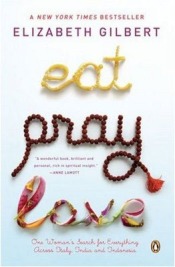Why I Read Memoir and a Trip to the Strand
March 29, 2010
This weekend, my boyfriend and I took our weekly trip to the Strand. For you non-New Yorkers, the Strand is the greatest bookstore ever. 18 miles of books for low prices make it my favorite place to shop in all of Manhattan.
Since we visit the store at least once each week, we try not to make a purchase every visit. Although I try very hard to follow our goal, I often have to go back the next day without my boyfriend to buy a book I was eyeing the night before (just don’t tell him).
On Friday, for a total of $12.50, I picked up two books—two memoirs—that I’ve wanted for quite some time:
Why Memoirs are Increasing in Popularity
March 26, 2010
Memoirs are not new, but they’ve recently become quite popular.
In Ben Yagoda‘s “Memoir: A History,” Yagoda writes:
“According to Nielsen BookScan, which tracks about 70 percent of U.S. book sales, total sales in the categories of Personal Memoirs, Childhood Memoirs, and Parental Memoirs increased more than 400 percent between 2004 and 2008.”
In an April 15, 2008 article, “Everybody has a story — but is it worth telling?” for CNN, Todd Leopold wrote:
“Memoirs rose in popularity during the ’90s on the backs of such books as Frank McCourt’s “Angela’s Ashes.” Now they’re in such demand that, in 2007, more memoirs were accepted by publishers than debut novels, according to Michael Cader’s Publishers Lunch newsletter, reported USA Today.
Current memoirs in the top 10 of The New York Times’ hardcover list include Julie Andrews’ “Home,” David Sheff’s “Beautiful Boy,” Jose Canseco’s “Vindicated,” Tori Spelling’s “Stori Telling” and Valerie Bertinelli’s “Losing It.” The top two books on the Times’ paperback nonfiction list are also memoirs — Greg Mortenson and David Oliver Relin’s “Three Cups of Tea” and Elizabeth Gilbert’s “Eat, Pray, Love.” Both have been on the Times list for more than a year.”
Since Leopold wrote that article, not much has changed. Almost two years later, “Eat, Pray, Love” is sitting at number 4 on the Paperback Nonfiction Bestseller list. The movie adaptation of the book, starring Julia Roberts and James Franco, is set to be released this summer.
So why now, more than ever, are memoirs so popular?
NYC Gotham Writers’ Workshop Free Memoir Class
March 25, 2010
As mentioned in my last post, I attended a free memoir writing workshop offered by the Gotham Writers’ Workshop on Wednesday.
I had no idea what to expect from the workshop; I didn’t even know where it was being held! When I found the correct address, 163 Court Street in Brooklyn, I almost turned around and went home. 163 was posted above a large door that lead to private apartments. I’ve seen too many episodes of Law and Order: SVU to enter a shady apartment alone. Fortunately, I took a step back and saw that 163 was also the address of the bookstore next door, a beautiful and charming place called BookCourt.
My slight freak-out about the address of the workshop made me realize just how nervous I was; I wasn’t concerned about talking to the people in the class, but that I would be forced to participate in writing exercises (which would turn out to be a justified fear).
Teaching Memoir: Memoir Writing Classes in NYC
March 23, 2010
By definition, anyone can write a memoir: “a narrative composed of personal experience.” Our lives are already narratives. People who write memoirs make a conscious decision to put their narrative on paper to share with the rest of the world.
But what should come first: the desire to write a memoir or a particularly jarring moment in one’s personal narrative?
With the recent rise of classes offering to help people write their own memoir, it would seem the former.
Fordham University offers a class called “Writing Autobiography/Memoir.” It is a class open to both undergraduate and graduate students and the course description states:
I happen to love memoirs by people who aren’t famous. A memoir doesn’t need to be filled with high-profile celebrities to catch my attention or Oprah’s (don’t worry, I’ll devote a whole post to James Frey). But can one be taught how to write a memoir? Are the people taking these classes only searching for fame, similar to people who sign up for reality shows?“It’s been said that the memoir now has the authority once accorded to fiction. True or not, periodical publications have expanded the space they devote to personal writing, often contracting the space once accorded to the short story. It is increasingly common for fiction writers to write personal essays. This class is a workshop in the personal essay where we will spend most of our time critiquing your works in progress. Since the techniques of memoir are indistinguishable from those of fiction, we will concentrate on dialogue, exposition, scene, character, managing narrative time (past, present, future) and, most of all, the development of a persona.”
Welcome to famemoir
March 21, 2010
Main Entry: mem·oir
Pronunciation: \’mem-ˌwär, -ˌwȯr\
Function: noun
Etymology: Middle French memoire, from memoire memory, from Latin memoria
Date: 1571
1 : an official note or report : MEMORANDUM
2 a : a narrative composed from personal experience b: AUTOBIOGRAPHY —usually used in plural c : BIOGRAPHY
3 a : an account of something noteworthy : REPORT b plural : the record of the proceedings of a learned society
– Merriam-Webster.com
Out of Merriam-Webster’s definition of memoir, it is the 2a definition which most closely matches my own thoughts on the genre. I consider a memoir a way for a person to share a private memory with the world. Memoirs are often accounts of “something noteworthy;” however, I am most intrigued by memoirs of seemingly typical people who lead seemingly typical lives.



